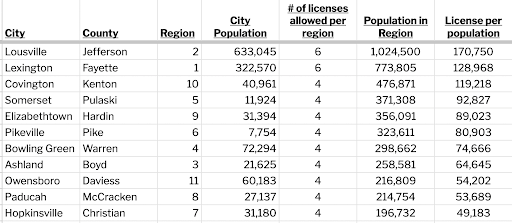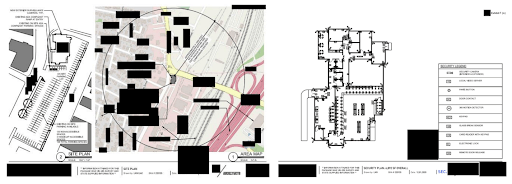How to Apply For A Kentucky Medical Cannabis License
Take Part In A Graceful Medical Cannabis Program Roll Out
We are over the moon—or at least over the bourbon barrel—when it comes to the upcoming medical cannabis licensing round in Kentucky. While many states and commonwealths have had difficult rollouts with their cannabis programs of late (looking at you, New York) we have been heartened at the communication, transparency, and efficiency from the Kentucky Medical Cannabis Program. We know the timeline, we know the requirements, and best of all, we know what you should be focusing on as you gear up to apply.
Here we’ll be covering some of the major areas of the licensing application process you should be focusing on now, if you haven’t already. We’ve partnered with cannabis real estate development firm, CannDev to give you trusted insights from industry veterans to ensure you’re prepared for the upcoming application round.
1) Start Your Cannabis Business Formation and Governance
This is a critical step towards actualizing your prospective cannabis business. Be sure to form the business (such as a limited liability company or LLC) and have that business registered and in good standing with the Kentucky Secretary of State. You’ll need the business’s name, including a “doing business as” or DBA, the Kentucky SOS number, and the federal tax identification number. In addition, be sure to have your governing documents, bylaws, and applicable formation documents of the business at the ready.
And if you have a website for the business, (this isn’t required, but it is recommended just so you have control of the URL and domain that you want to operate under) be sure to include that within the application too. This is all essential for any business in its creation, so if you haven’t done these steps, do them now!
2) Plan Sufficient Capital Needed to Apply
One of, perhaps, the largest barriers to entry with this application program is making sure that you have proof of sufficient capital for owning and operating your prospective business. In order to qualify for the lottery, applicants will need to show that they have sufficient capital, which can vary based on the license type.
Capital Required Per Cannabis License Type
Below are the sufficient capital requirements for each of the cannabis license types available in this licensing round.
- Tier I Cultivator—$50,000
- Tier II Cultivator—$200,000
- Tier III Cultivator—$500,000
- Processor—$150,000
- Dispensary—$150,000
- Safety Compliance Facility—$150,000
To show this, you will need to upload supporting documentation to the license application portal which may include bank statements showing the applicant’s deposits or a letter of credit or similar document from a financial institution extending credit to the applicant. A crucial note here, you can submit multiple applications (upwards of 11 for retailers, for each of the 11 regions of the commonwealth) but you cannot use the same capital for more than one (1) application. There needs to be differential between applications.
3) Create Kentucky’s Required Narrative Plans
There is quite a bit of additional documentation necessary for this application submission. This includes multiple documents such as an operational plan, a site plan, a financial plan, a summary of prior business experience in the commonwealth, and a timeline showing steps and estimated amount of time it will take to begin cannabis operation. This is a great time to begin working on these plans as they will take an exceptional amount of time.
Cannabis Business Operational Plan
This is especially the case for the operational plan which requires a summary of the intended plan of operation that describes, at a minimum, how your proposed cannabis business operations will address:
- Security
- Employee qualifications, supervision, and training
- Transportation of medicinal cannabis
- Storage and labeling of medicinal cannabis
- Inventory management
- Recordkeeping
- Preventing unlawful diversion of medicinal cannabis
- Workforce development and job creation
It’s important to note, with all of these requirements, none are perhaps more essential for the application than property. But, if you are still searching for a property to operate your cannabis business out of, our friends over at CannaDev have you covered. As for the rest, including writing the boatload of all these narrative plans, we at Canna Advisors are here to help!
4) Get Kentucky Real Estate and Regional Insights from CannDev
Real estate is required to apply for a retail license and participate in the lottery in Kentucky during the upcoming application window starting July 1st through August 31st. An existing lease, deed or contingent agreement must be presented as proof of control.
Best Regions to Apply
Below is an internal document that CannDev uses to determine the best regions to secure cannabis real estate. Based on this information, it shows that the regions at the top of the list have the highest population per license, as opposed to the regions at the bottom of the list. Louisville and Lexington are the most popular cities for cannabis applications. There are also some border towns like Bowling Green that have good revenue potential.

What if My City Opts Out?
CannDev does not currently have access to a cannabis opt-in/opt-out list in Kentucky. They are actively contacting cities to find out which of them allow medical cannabis retail. Each city has until January 1, 2025 to opt out of cannabis with a handful of cities already enacting zoning ordinances to allow for medical cannabis retail.
If an application is submitted and receives a retail license in a city that does not allow the sale of cannabis, the state will allow the license to be moved to another city in the same region. However, this is at the state’s discretion, and if an applicant is deemed to have used a non-compliant location for the application with the intent to relocate, it may revoke the license. CannDev recommends only applying with a location in a city that has clearly opted in so the speed to market advantage can be utilized.
Cannabis Facility Site Plans
Kentucky cannabis applicants must also submit a site plan with a technical drawing or rendering of the facility where the applicant intends to conduct cannabis businesses. With a general idea of the layout of the facility and the location of limited access areas, i.e., areas accessible only to authorized personnel.
Below is an example shared by the state:

CannDev is actively contacting the cities with the highest revenue potential to understand the exact regulatory requirements for real estate, and to ensure that that city will allow medical cannabis retail and not opt out.
They then secure real estate locations and offer them to applicants under a contingent lease so they can submit them with their applications. CannDev is also looking to provide location site plans to make it even easier for applicants to work with us.
Work With Cannabis Consultants to Get it Right the First Time
While this Kentucky cannabis application period will be a lottery, you will still need a highly technical and well planned out application to qualify for the lottery drawing. Utilizing consultants and experienced industry experts can not only increase your chances of avoiding deficiencies but can also help you navigate this emerging medical market through to operation.
Contact the consultants at Canna Advisors for all of your application needs and reach out to Canndev for questions about Kentucky real estate to secure a compliant and fruitful location. You can also access their available real estate locations by signing up here.